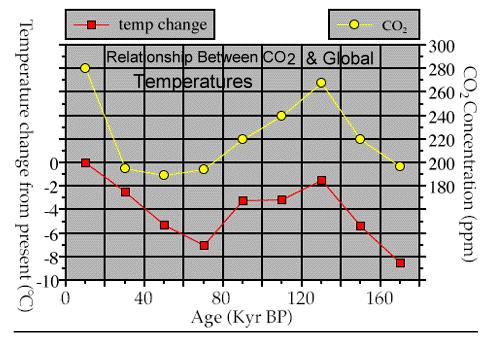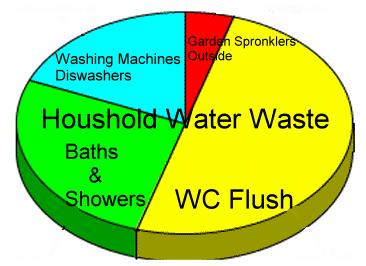POLLUTION CONTROL
The main ways to cut down pollution are to find alternatives for the those methods of production that cause it, to re-educate companies in waste disposal, and for the individual to reduce consumption of goods which harm our environment.
WAYS TO HELP:- It may help if we all try to buy products with recyclable or minimal packaging.
Power stations, factories and other companies that burn fossil fuels to produce electricity are major contributors of air pollution. Alternative energy forms would greatly cut down the amount of pollutants released into our atmosphere. Tougher legislation is needed to combat the pollution caused by factories.
WAYS TO HELP:- Write to your MP or to the Government, demanding tougher legislation, plus tougher penalties for those individuals within companies, who persistently flout the regulations. Also get your friends to sign a petition, and send it to the Prime Minister.
Traffic exhaust fumes contribute to air pollution most new cars are fitted with catalytic converters which remove carbon monoxide nitrogen monoxide and hydro- carbons from exhaust systems, these are an improvement but they still give of carbon dioxide on of the major greenhouse gasses.
WAYS TO HELP:- Encourage people to buy cars fitted with catalytic converters. Try to use cars only when absolutely necessary.
In densely populated area such as cities, where there are high volumes of traffic, traffic pollution is a very serious threat to people’s health. In some cities, traffic policemen and women have to wear a mask covering their nose & mouth, to protect them from exhaust fumes. Also they are only allowed a limited time directing traffic before they have to take a break.
Lead in petrol is poisonous, And exhaust contain small amounts of metal lead which come out of the exhaust as tiny particles of dust this lead can affect the brain, especially the brains of young, growing children.
WAYS TO HELP:-Get you vehicle converted so that it is able to run on unleaded fuel. If you are too young to drive try and persuade your mum or dad.
Luckily this problem is being successful tackled, and the large majority of drivers now fill their petrol tanks with lead free fuel. All these measure are a great improvement, but to help further we need to cut down on car journeys and walk and use public transport where possible.
Most of the pollution on land is from household waste. Carelessly dumped rubbish is a danger to adults and children alike, plus wild and domestic animals. Broken bottles, food cans and other household waste can cause serious injuries to children playing. Some household waste can also spread disease. This irresponsible dumping of rubbish is also a horrible eyesore to everyone.
WAYS TO HELP:- Be sure to dispose of your litter and other rubbish in a responsible manner. If you see anyone tipping rubbish from their cars, by the side of the road. TAKE NOTE OF THE REGISTRATION NUMBER AND REPORT THEM.
Rubbish dumped in landfill site releases very harmful chemicals into the ground as they rot to avoid these dangers we must cut down on the household waste that each house produces.
WAYS TO HELP:- Buy goods with minimal packaging this saves space in landfill site and does not cause so much harmful waste.
Recycling is the best way that individuals can help, material such as paper glass and metal can be recycled and organic waste can be made into compost.
WAYS TO HELP:- Collect your rubbish and pass it on to recycling organisations. Bottles Cans etc.
Plastics are a problem to dispose, so avoid them if possible, where recycling is impossible try to buy products with biodegradable or minimal packaging.
Both inland waters seas and oceans are being harmed by pollution. All life on earth depends on water, so more care must be taken to preserve its purity. Inland water pollution from industrial and chemical waste farming residue and landfill sites is killing wildlife and affecting the water we use in our homes. Government are introducing laws to restrict and prohibit the pollution pumped into our rivers and lakes.
Even household waste water from washing machines, dishwashers etc, helps to pollute our water so be careful when disposing of waste, try to use environmental friendly products if they are to drained away in the water supply.
WAYS TO HELP:- Use low-phosphate or phosphate-free detergents, or substitute these for other less harmful products READ the LABELS ON WASHING.
Avoid wasting water, it is a precious resource which we need every day for drinking washing and cooking. The more we use the more need there will be to flood large areas of land for reservoirs.
WAYS TO HELP:- Don’t leave taps running while you are brushing your teeth, shaving etc. This wastes thousand of gallons of clean water every year, it is estimated that the average person wastes approximately 5 gallons of water each time they clean their teeth. So if you clean yours twice a day. 10 x 365 days = 3,650 gallons (16,257 litres) of water per person, wasted every year!
Also, if possible take a shower instead of a bath. It is estimated that on average a shower uses only a third as much water and energy to heat it as a bath. This also helps to keep the bills down (that’ll please mum & dad) and thus reduce the demand on power stations, which causes less pollution.
You see we really can all do our bit to help the environment, and every little bit helps…
Please help us to save the Rainforests of the world. You kmow it makes sense!
Thank you for reading this, and for your support.
Data correct at date of writing.
Site translator.
[google-translator]Notice – Please Read
The information provided in this website is intended for educational and informational purposes only. It is NOT in any way, directly or indirectly, an advertisement or claim for any actual Raintree product, nor should it be construed as such. The products and various statements contained within this website have not been evaluated by the MOH, BMA or the FDA and, as such, these products are not intended to treat, cure, mitigate or prevent any disease or ailment. The references contained herein relate to local, indigenous and traditional uses only. Raintree Health categorically "does not" offer professional medical advice. We would always strongly advocate that our visitors seek advice from their own GP, private doctor or medical specialist for any ailment, illness or medical condition. You know it makes sense!






